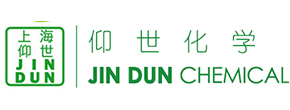Research progress in the synthesis of chemicals from lignocellulose
2023/9/12
According to Zhou Yongjin, lignocellulose has a wide range of sources and is renewable, making it a highly potential second-generation biological refining raw material. Polymorphic Hansen's yeast has advantages such as natural xylose metabolism, high temperature resistance, and high-density fermentation, making it an excellent host for the biological refining of lignocellulose. To achieve efficient bioprocessing of lignocellulose, the research team transformed Hansen's yeast multiforme into a strain for fatty acid synthesis using precise genome editing technology.
However, in the process of microbial utilization of cellulose hydrolysate, there is a phenomenon of glucose inhibiting the utilization of xylose, which limits the efficiency of lignocellulose bioconversion. To address this issue, the research team achieved synchronous utilization of glucose and xylose by enhancing the efficiency of xylose metabolism in Hansen's yeast multiforme, without sacrificing glucose utilization. The experimental data shows that in glucose and xylose simulated materials, the yield of fatty acids reaches 38.2 grams/liter; In real lignocellulosic hydrolysates, the yield of fatty acids reaches 7.0 g/L. This also achieves efficient synchronous utilization of six carbon sugar and five carbon sugar, improves the efficiency of lignocellulosic bio refining, and reduces production costs.
After obtaining the fatty acids, the research team developed metabolic conversion technology to convert Hansen's yeast multiforme from synthesizing fatty acids to synthesizing 3-hydroxypropionic acid. Simply put, this technology involves removing fatty acid synthesis related genes through metabolic modification, followed by loading 3-hydroxypropionic acid synthesis related genes. Finally, the research team transformed the fatty acid synthesis strain into a 3-hydroxypropionic acid synthesis strain and obtained 79.6 grams/liter of 3-hydroxypropionic acid.
By utilizing this technology, we can theoretically synthesize more target products with similar precursors, "Zhou Yongjin said. This technology also provides a new and efficient microbial platform for lignocellulose biorefinery.
In addition, the enzymatic hydrolysis process of lignocellulose usually requires a high temperature of over 50 ℃, while the optimal growth temperature for ordinary microorganisms is around 30 ℃. Therefore, the temperature difference between the two requires a significant amount of cooling costs. However, the polymorphic Hansen's yeast can withstand high temperatures, grow normally at 50 ℃, and synchronize the saccharification and fermentation process, thereby saving cooling costs and effectively avoiding contamination by miscellaneous bacteria.
Zhou Yongjin stated that in order to achieve industrial application as soon as possible, the research team should, on the one hand, combine rational transformation with laboratory adaptive evolution on the basis of synchronous utilization of glucose and xylose, further strengthen sugar utilization efficiency, and reveal relevant molecular mechanisms; On the other hand, after preliminary attempts to utilize batch feed fermentation technology for the utilization of hydrolysate, further large-scale fermentation was carried out and a 1000 liter pilot plant was constructed. We have also achieved efficient methanol bioconversion to synthesize fatty acids in the early stage of transformation of Hansen's yeast. In the future, we will also try to use lignocellulose to synthesize more high-value chemicals, and continue to explore the feasibility and application potential of lignocellulose biorefinery.
JIN DUN CHEMICAL has built a special (meth) acrylic monomer manufacturing base in ZHEJIANG province. This makes sure the stable supply of HEMA, HPMA, HEA, HPA, GMA with high level quality. Our special acrylate monomers are widely used for thermosetting acrylic resins, crosslinkable emulsion polymers, acrylate anaerobic adhesive, two-component acrylate adhesive, solvent acrylate adhesive, emulsion acrylate adhesive, paper finishing agent and painting acrylic resins in adhesive.We have also developed the new and special (meth) acrylic monomers and derivatives. Such as the fluorinated acrylate monomers, It can be widely used in coating leveling agent, paints, inks, photosensitive resins, optical materials, fiber treatment, modifier for plastic or rubber field. We are aiming to be the top supplier in the field of special acrylate monomers, to share our rich experience with better quality products and professional service.

